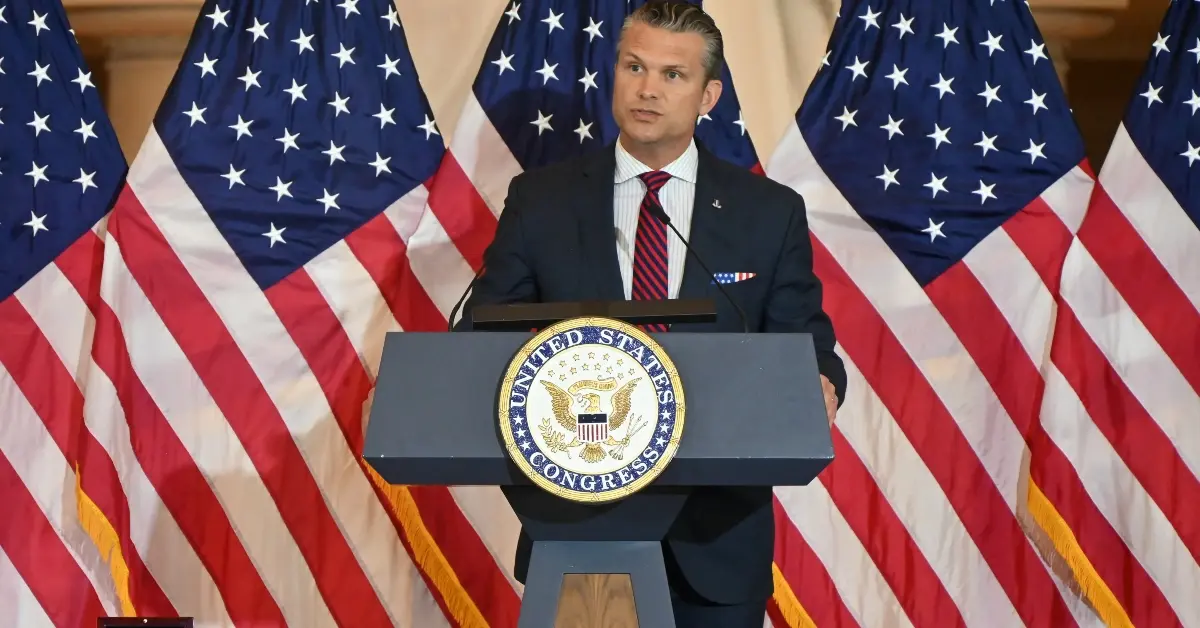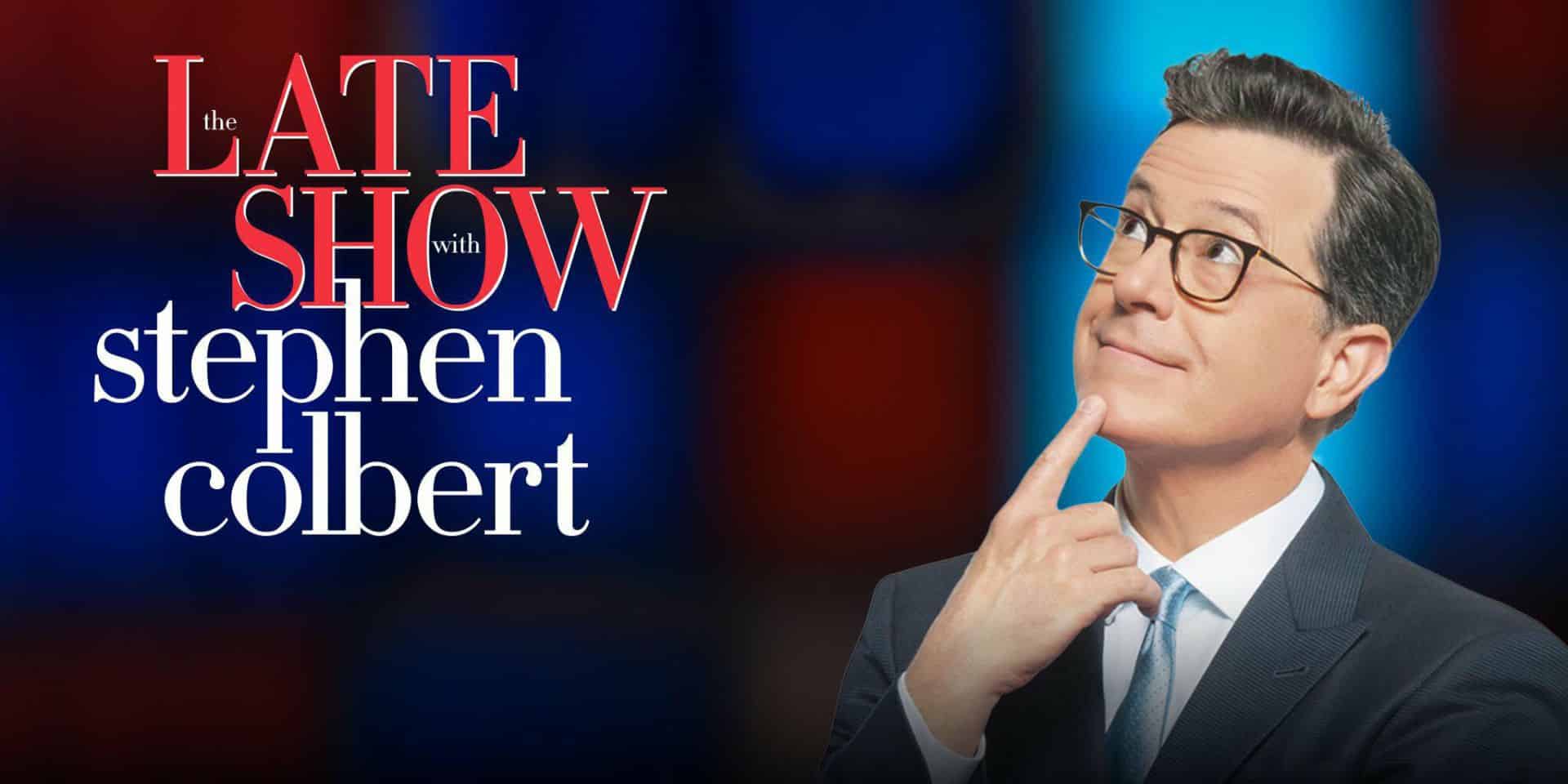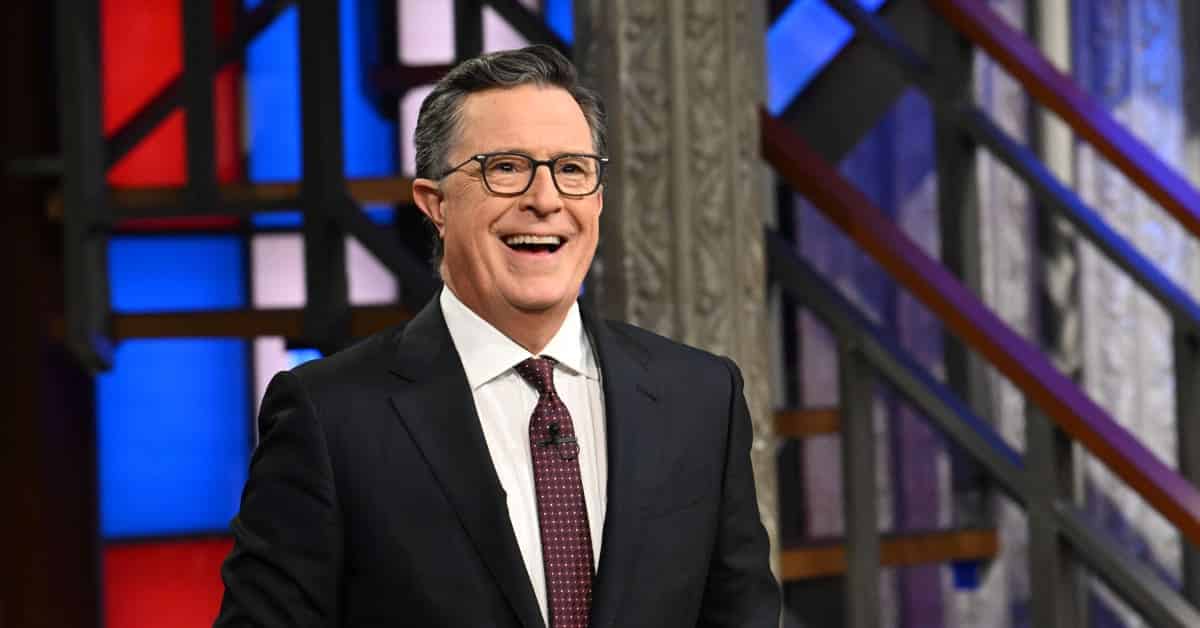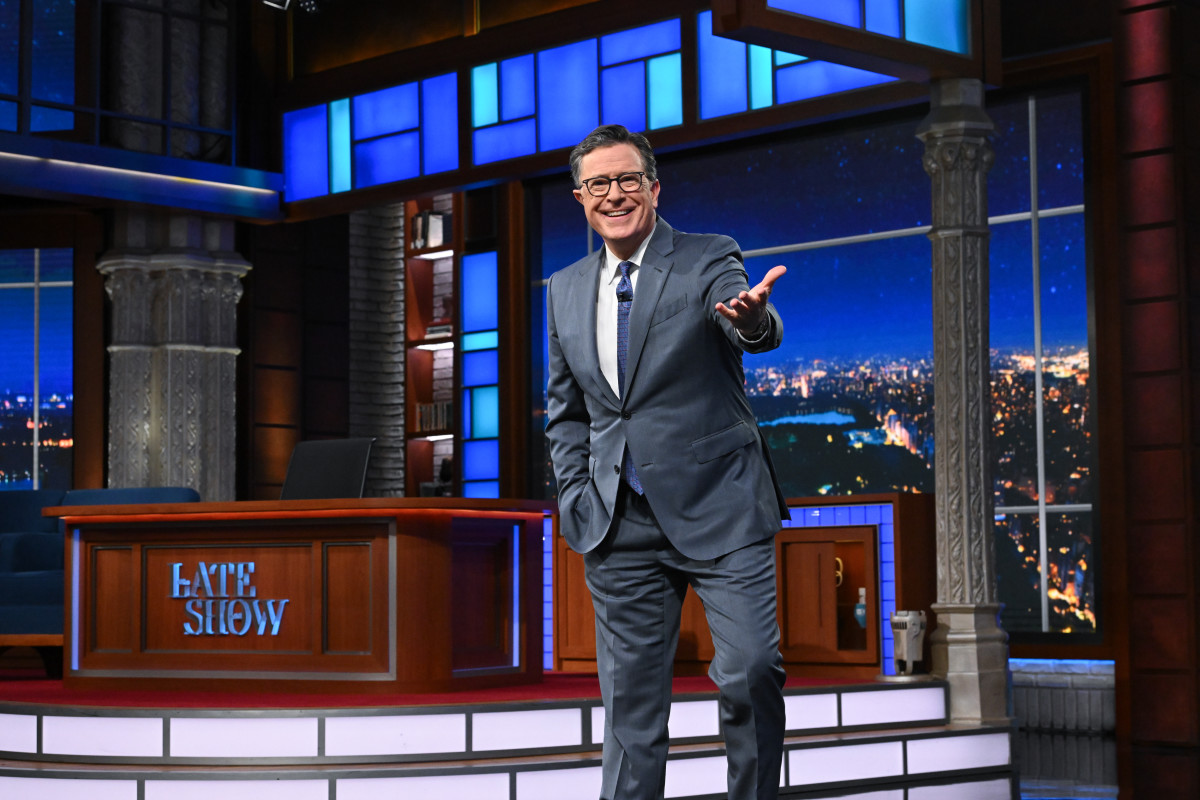🎭 A Moment That Broke the Room
When Stephen Colbert leaned into the camera last Thursday night, smirking just slightly before delivering the line —
“Pete Hegseth is a five-star douche.”

— the audience erupted.
It wasn’t just laughter. It was release.
For a late-night host whose monologues have long blended humor with politics, this was Colbert in his purest, rawest form — sharp, unfiltered, and unmistakably furious. Within minutes, the clip flooded social media, racking up millions of views and sparking one of the biggest cultural firestorms of 2025.
But what appeared to be a throwaway insult was actually the latest salvo in a deepening feud between late-night liberalism and conservative media.
⚡ What Triggered the Outburst?
The spark came days earlier, when Fox News host Pete Hegseth accused Colbert — and, by extension, much of late-night television — of being “elitist echo chambers disconnected from real Americans.”
Hegseth’s comment wasn’t new; it echoed a familiar conservative talking point. But this time, it hit a nerve.

According to CBS insiders, Colbert scrapped part of his planned monologue hours before taping and personally rewrote the segment that targeted Hegseth. “He wanted to make it personal,” said one producer. “He was done letting people like Pete frame the narrative unchallenged.”
🎙️ The Line That Went Too Far—or Exactly Far Enough?
After the viral “five-star douche” jab, Colbert followed with a cutting remark few expected:
“Pete doesn’t just say stupid things — he says them proudly, like he’s auditioning for a sequel to ignorance itself.”
Gasps. Laughter. A standing ovation.
And, perhaps most importantly, a reaction that split the nation in two.
Progressive audiences hailed Colbert’s words as a moment of “truth-telling through comedy.” Conservative commentators, however, saw it as “another example of Hollywood arrogance.”
Within hours, Hegseth fired back online, calling Colbert “the self-appointed pope of smug liberalism.”

💣 Beyond the Joke: The Politics of Late-Night
To understand why this moment hit so hard, you have to understand what late-night television has become.
Gone are the days of Johnny Carson’s apolitical charm or Jay Leno’s middle-road humor. The new late-night landscape is a battleground for ideology, and Colbert stands at its front line — blending satire, sermon, and social commentary.
In that sense, Colbert vs. Hegseth isn’t just about two men trading insults.
It’s about two visions of America:
One that sees humor as truth-telling,
And another that sees it as cultural condescension.
🔥 Social Media Meltdown
By sunrise, the internet was ablaze.
#ColbertVsHegseth trended on X and TikTok.
Clips from The Late Show dominated Reddit threads, while memes spread like wildfire — some celebrating Colbert’s “kill shot,” others mocking his “performative outrage.”
A surprising twist came from younger conservative creators on TikTok, many of whom admitted Colbert’s delivery was “savage but hilarious.”
It was proof, perhaps, that comedy still transcends party lines — at least for a few seconds.
🧠 What It Says About Us

Colbert’s outburst may be remembered as a turning point in America’s cultural conversation — a reminder that late-night TV isn’t just entertainment anymore.
It’s a mirror reflecting how divided, defensive, and desperate for authenticity the country has become.
When Colbert called Hegseth a “five-star douche,” he wasn’t just mocking a man — he was mocking a movement.
And when millions cheered, it said as much about the audience as about the comedian.
📺 The Aftermath
Sources at CBS hint that Colbert’s next episode might continue the feud, with writers crafting a “Part Two” of his takedown — this time focusing less on Hegseth himself and more on “the media machine that made him.”
Fox News, meanwhile, is reportedly discussing how to “respond on air,” with some insiders pushing for a satirical rebuttal segment.
What started as a monologue might now evolve into a full-blown media showdown — a clash between truth and theater, ego and ideology.

✍️ Final Word
In an era where comedy has become commentary, and commentary has become combat, Stephen Colbert’s outburst wasn’t an accident.
It was a statement.
A reminder that, sometimes, the sharpest political debates in America no longer happen in Congress —
but behind a late-night desk, beneath the glare of studio lights, with one perfectly timed punchline.